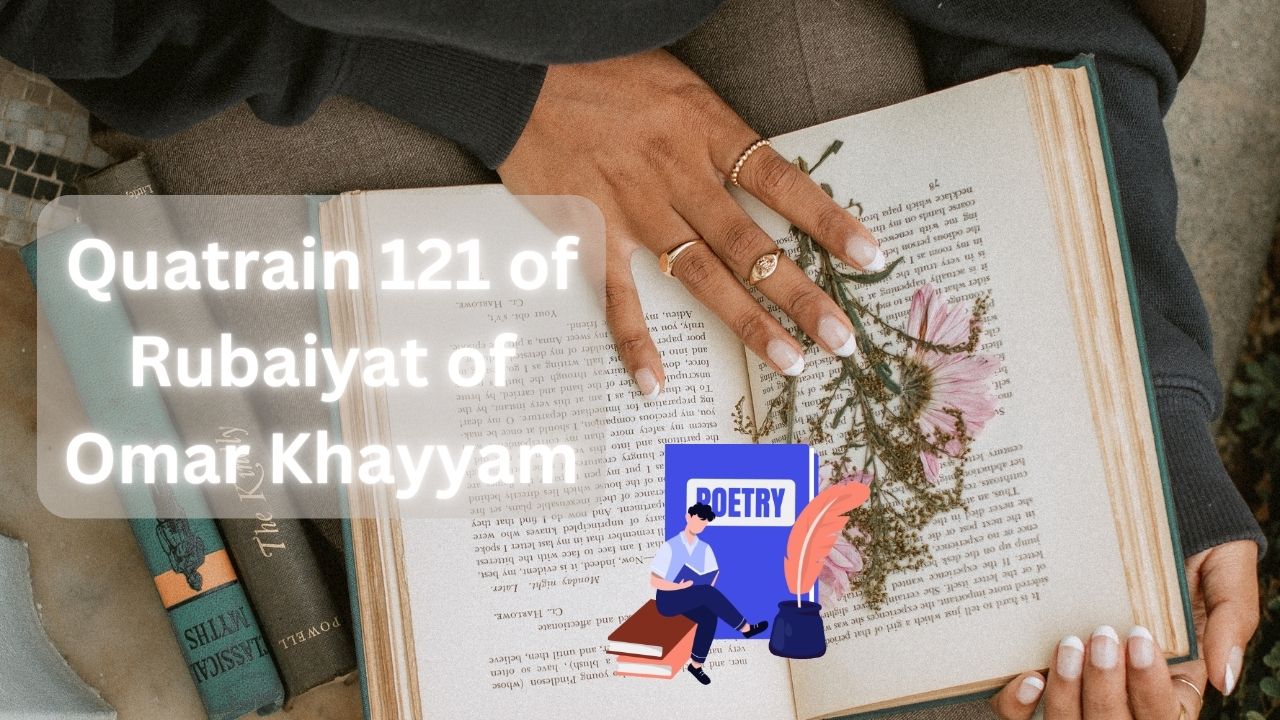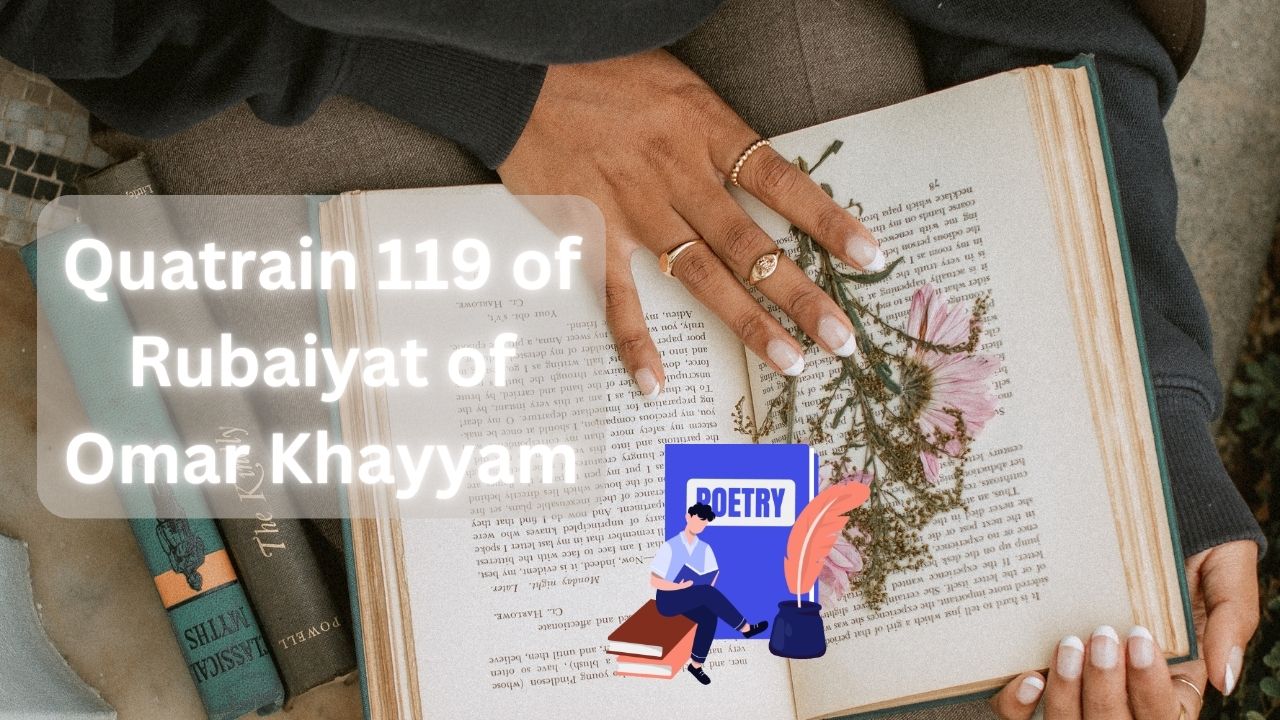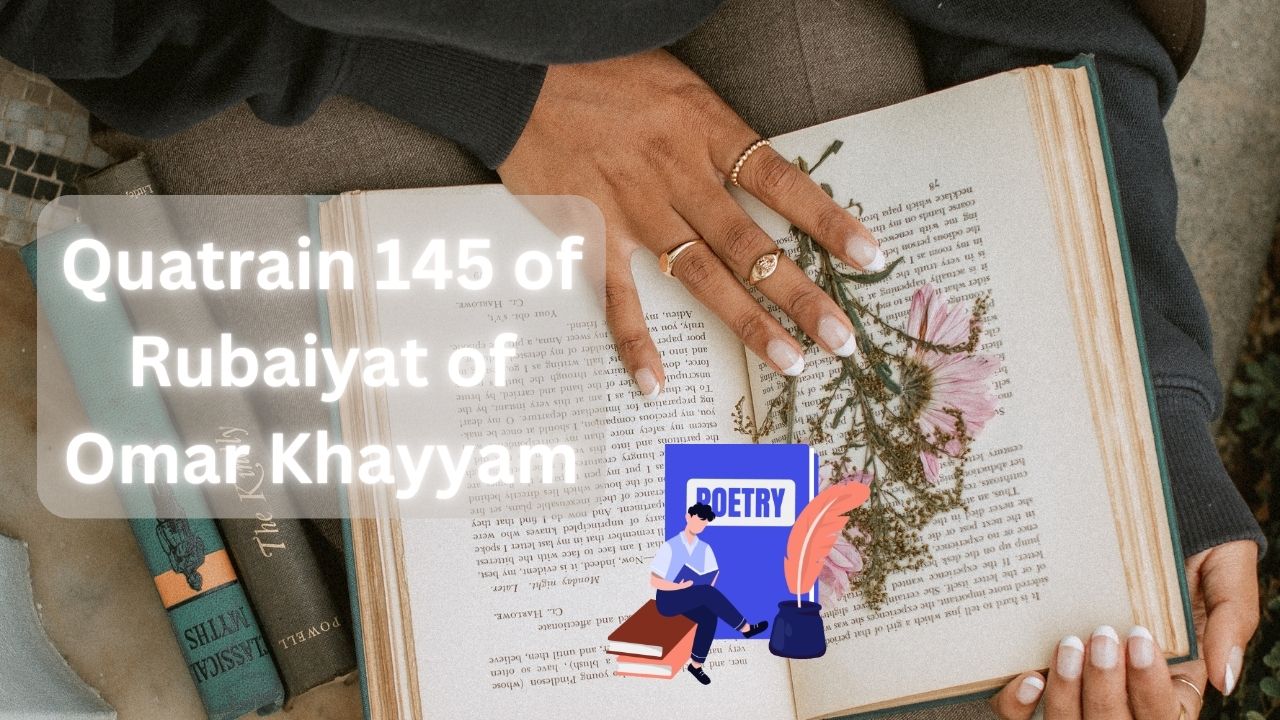This world is like a carousel that we as humans have our turn to ride and then disembark. We should enjoy our chance because when we depart we join all others who have gone before us since thousands of years ago and we are equal to them. This is the message of Omar Khayyam in Quatrain 121 of his Rubaiyat.
ای دوست بیا تا غم فردا نخوریم
وین یک دم عمر را غنیمت شمریم
فردا که از این دیر فنا در گذریم
با هفت هزار سالگان سر بسریم
Oh friend, let us not grieve for tomorrow's woes, And let us seize this fleeting moment's rose.
For when we pass from this mortal sphere, With seven thousand years, we'll be equal.
This quatrain is a reminder to live in the present moment and not worry about the future. It speaks to the fleeting nature of life and the limitation of our time on earth. The poet suggests that we should make the most of the time we have and enjoy the simple pleasures of life.
Here is a more literal translation of the quatrain:
Oh friend, come, let us not be sorrowful of tomorrow, And let us count this one moment of life as a chance.
Tomorrow, when we pass from this house of destruction, With seven thousand years, we will be equal.
The idea of being equal in Khayyam's verse can be interpreted in two ways. One, we become equals with all the great and accomplished souls who have passed. We join a vast human legacy. On the other hand, it suggests a more somber reality. Death levels the playing field. Regardless of our achievements or failures in life, we all reach a point where we can no longer experience its joys.





